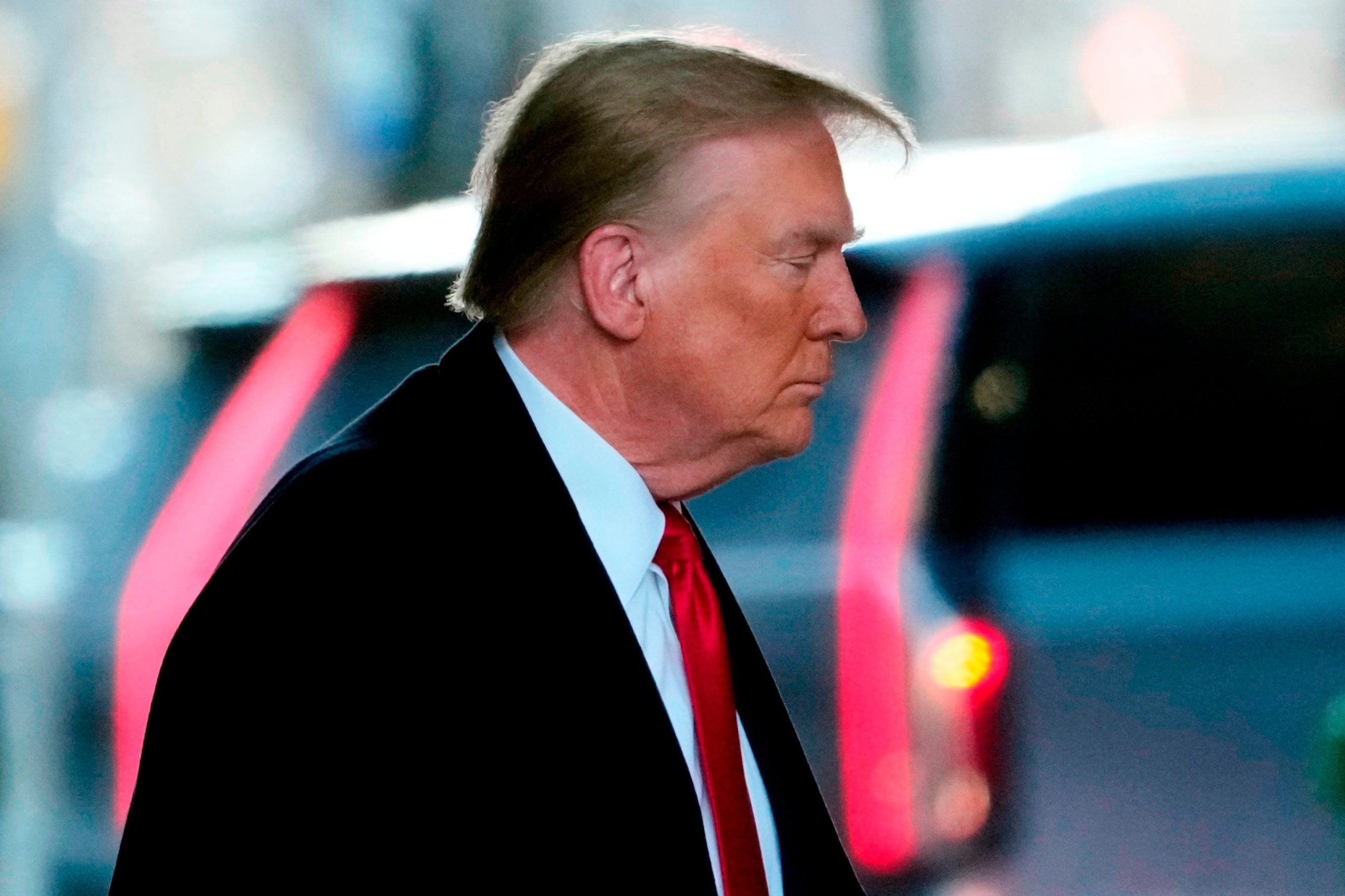The upcoming criminal trial of former President Donald Trump in Manhattan is set to begin with a rigorous jury selection process, reflecting the issue of trying a figure as polarizing as Trump.
The trial, which focuses on 34 counts of allegedly falsifying business records related to payments made to porn star Stormy Daniels during the 2016 presidential campaign, is drawing serious attention due to its historical and political ramifications.
Jury selection is scheduled to start next Monday, with potential jurors—a group of randomly selected New Yorkers—being thoroughly vetted through a detailed questionnaire. This seven-page document seeks to uncover any strong political biases or affiliations that might affect jurors’ impartiality.
Donald J Trump (Credits: Reuters)
Questions will probe jurors’ political activities, such as whether they have attended any rallies either supporting or opposing Trump and if they follow him on social media. Additionally, the questionnaire will ask about potential jurors’ views on extremist groups ranging from right-leaning entities like QAnon and the Proud Boys to the leftist Antifa.
The defense and prosecution are both keen to shape a jury that they perceive as favorable, given the high stakes of the trial. Trump’s legal team has previously expressed concerns about the possibility of bias among the New York jurors, given the city’s strong Democratic leanings in recent presidential elections.
These concerns were heightened by their failed attempt to delay the trial or change the venue, arguing that extensive media coverage has potentially prejudiced the jury pool against Trump.
Manhattan District Attorney Alvin Bragg has dismissed these concerns, pointing to the large population of New York County as a sufficient pool to find fair and impartial jurors.
The trial judge, Juan Merchan, has taken steps to protect the identities of jurors from the public and has issued a stern warning to Trump regarding a gag order that restricts his comments about the trial’s participants.
Donald J. Trump (Credits: WTOP)
As the selection process progresses, the method known as “voir dire” will allow lawyers from both sides to further question the jurors, ensuring that those selected can judge the case based solely on the evidence presented in court.
Despite the high-profile nature of the trial, experts like Leslie Ellis, a veteran jury consultant, suggest that there are still potential jurors who remain relatively uninformed about the case or indifferent to politics, which might help in forming an impartial jury.
The trial is expected to last six to eight weeks, during which the jury’s ability to remain unbiased and focused on the legal issues at hand will be critical to the proceedings. As the date approaches, the attention of both the media and the public remains fixed on what will be a landmark case in U.S. history.
